
"Exploring the Water Resources of Guangdong, Hong Kong and Macau", a project of the Ministry of Education, was successfully held in Beijing Normal University (BNU) at Zhuhai from November 16th to 18th, 2022. The project was organized by Phoenix School of BNU Zhuhai. Around a hundred students and teachers participated in the event through a combination of online and offline methods. They were from the University of Hong Kong, Hong Kong University of Science and Technology, Macau University of Science and Technology, Macau Polytechnic University and Beijing Normal University at Zhuhai.
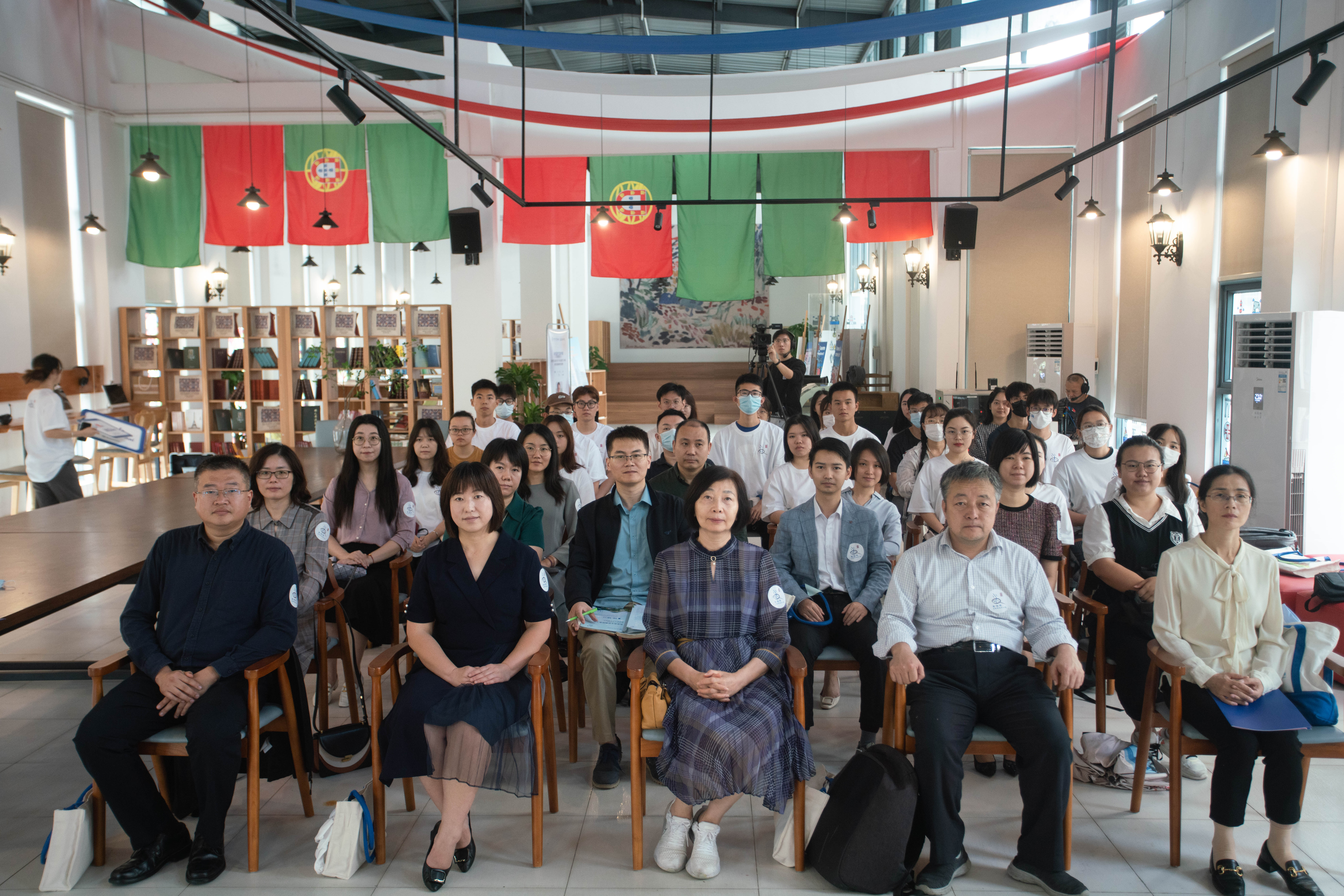
Picture 1
Opening Ceremony
The project "Exploring Water Resources in Guangdong, Hong Kong and Macau" featured lectures by experts, field visits and exchanges, as well as thematic workshops in groups of participants on topics such as environmental ecology and water resources, bringing a rich feast of science to the students. Relying on the interdisciplinary, first-class faculty and research team of Beijing Normal University in environmental ecology and water safety, as well as Zhuhai campus’s geographical advantage of being adjacent to Hong Kong and Macau, the project centered around the overall requirements and objectives of patriotic education for young people in Hong Kong and Macau in the new era, and gave full play to the "one university, two campuses" schooling pattern of Beijing Normal University and its historical mission of inheriting the red gene and serving the national development strategy.
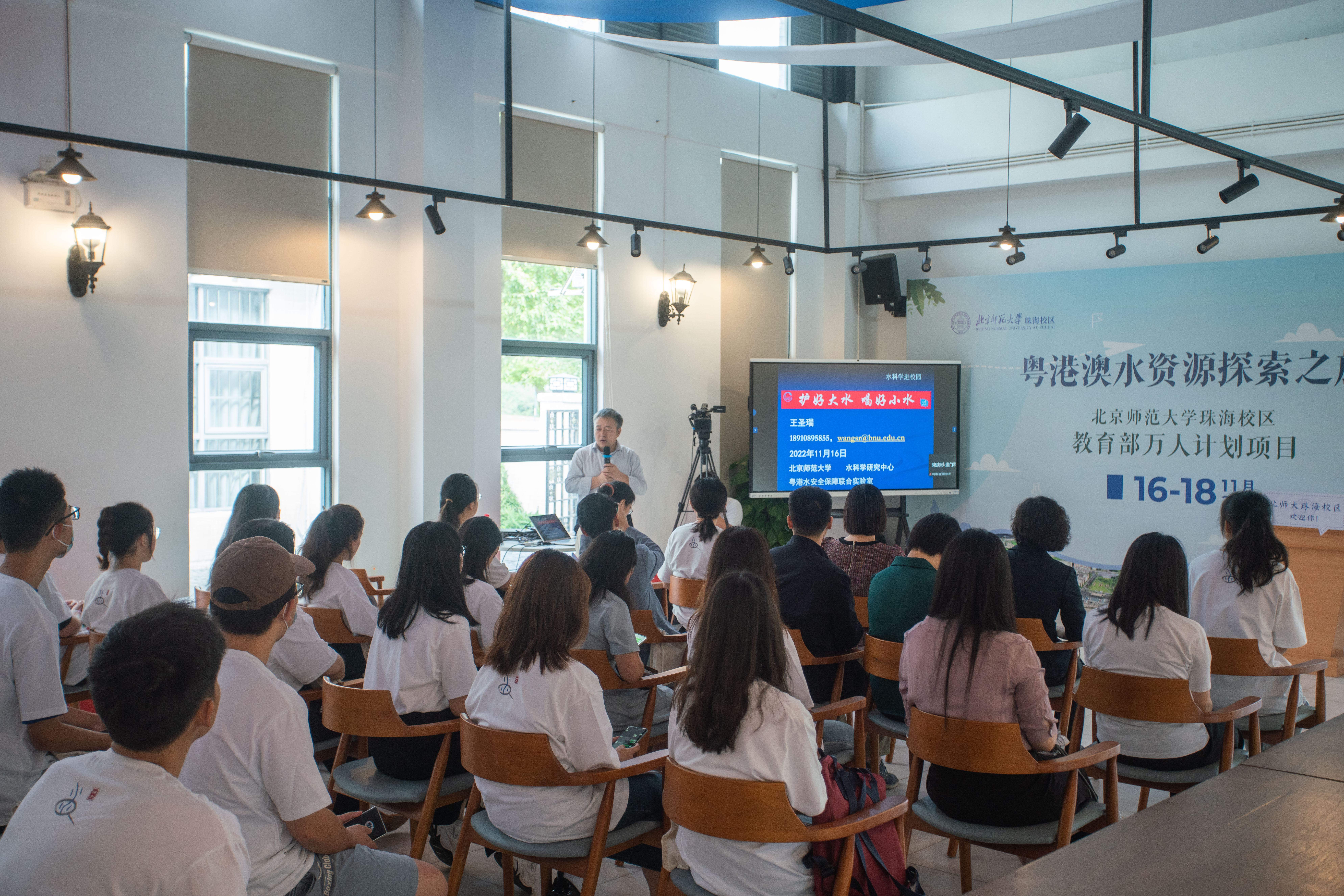
Picture 2
Professor Wang Shengrui gave a lecture on the theme of "Protecting Big Water and Drinking Small Water."
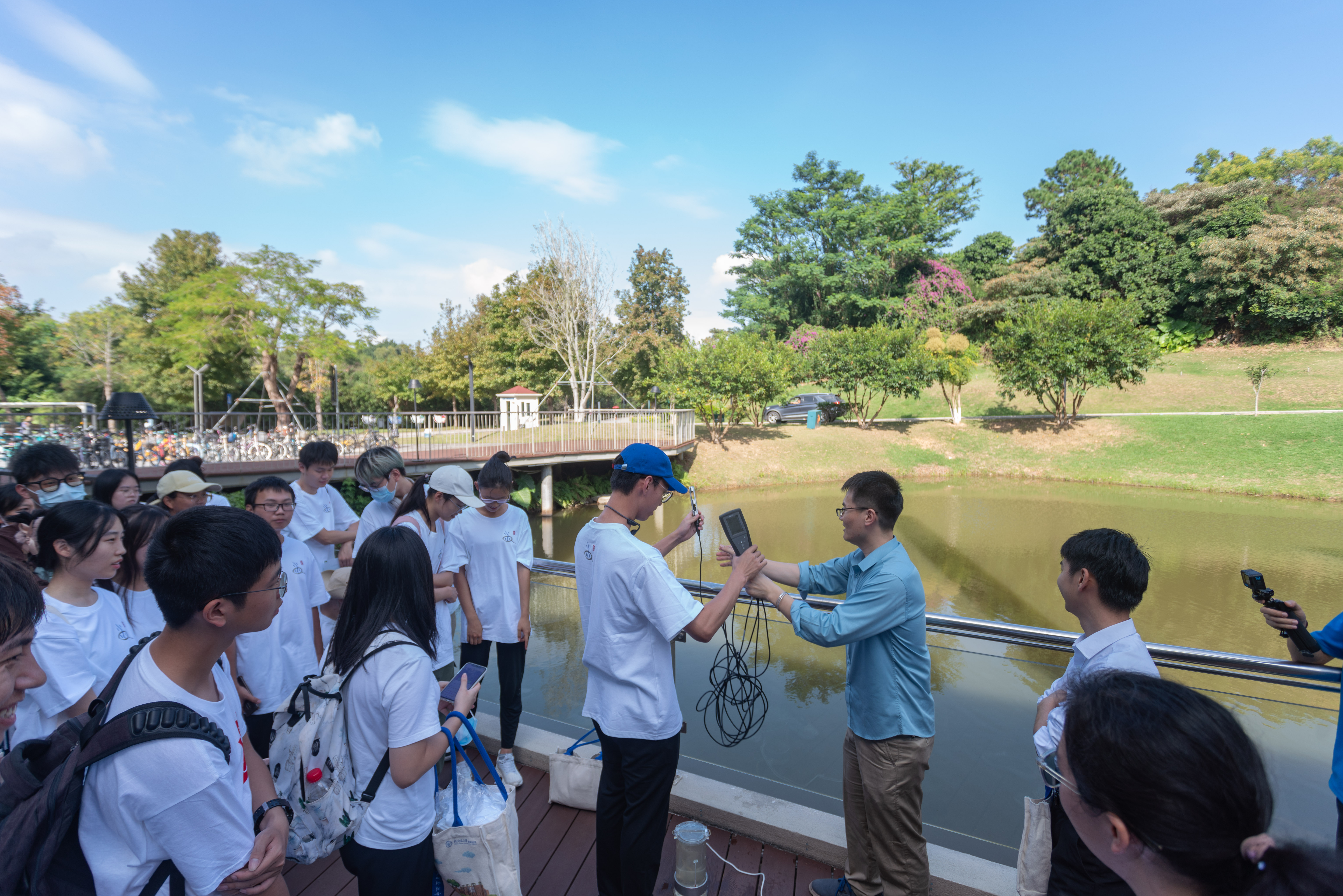
Picture 3
Under the guidance of Mr. Fan Fuqiang, the participants practiced how to collect water and test dissolved oxygen in the field using a water collector.
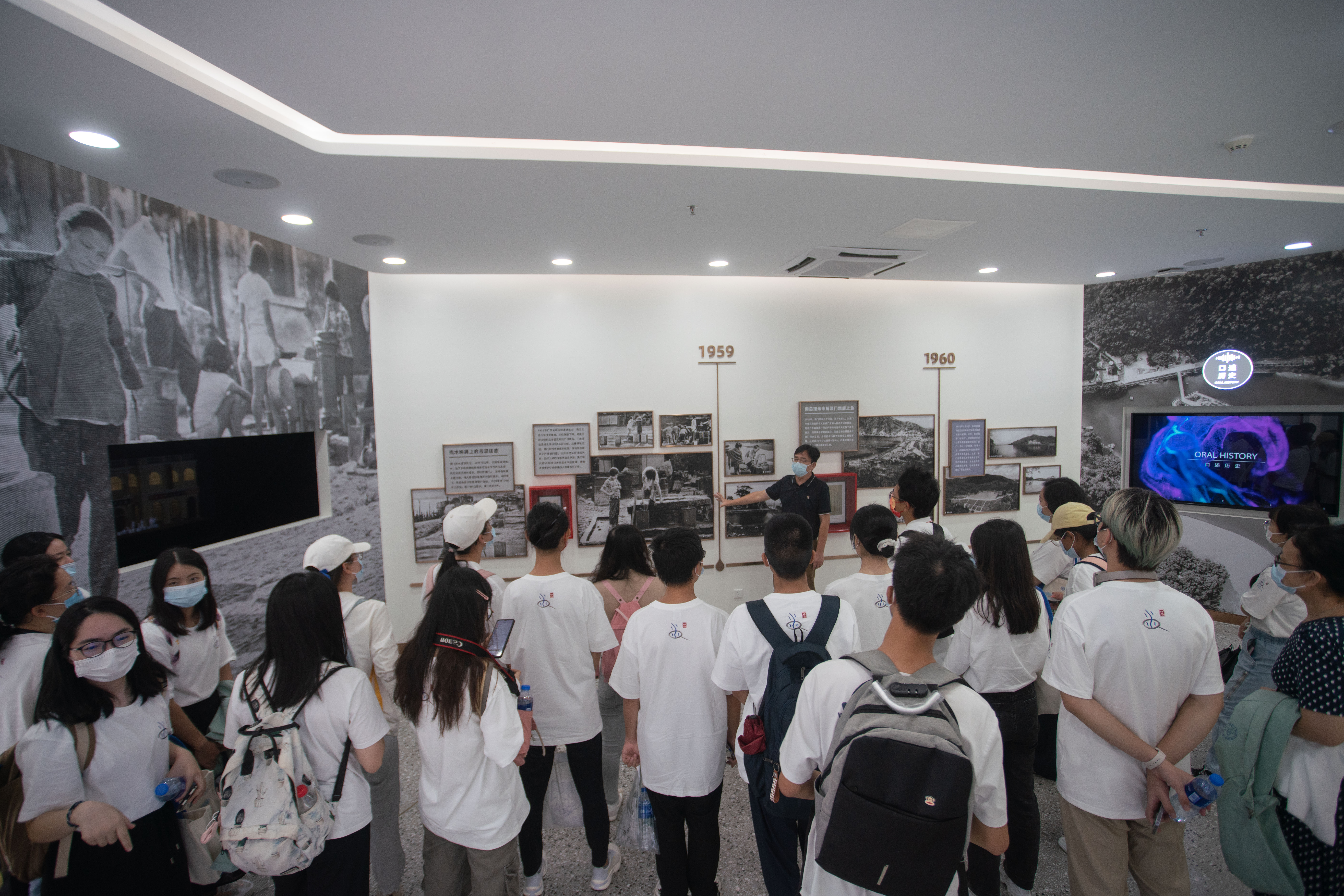
Picture 4
Zheng Jixuan, Secretary of the Party Branch of Nanwan Water Management Institute, talked about the history of Zhuhai's water supply to Macao at the Zhu Xian Dong Reservoir Pavilion.
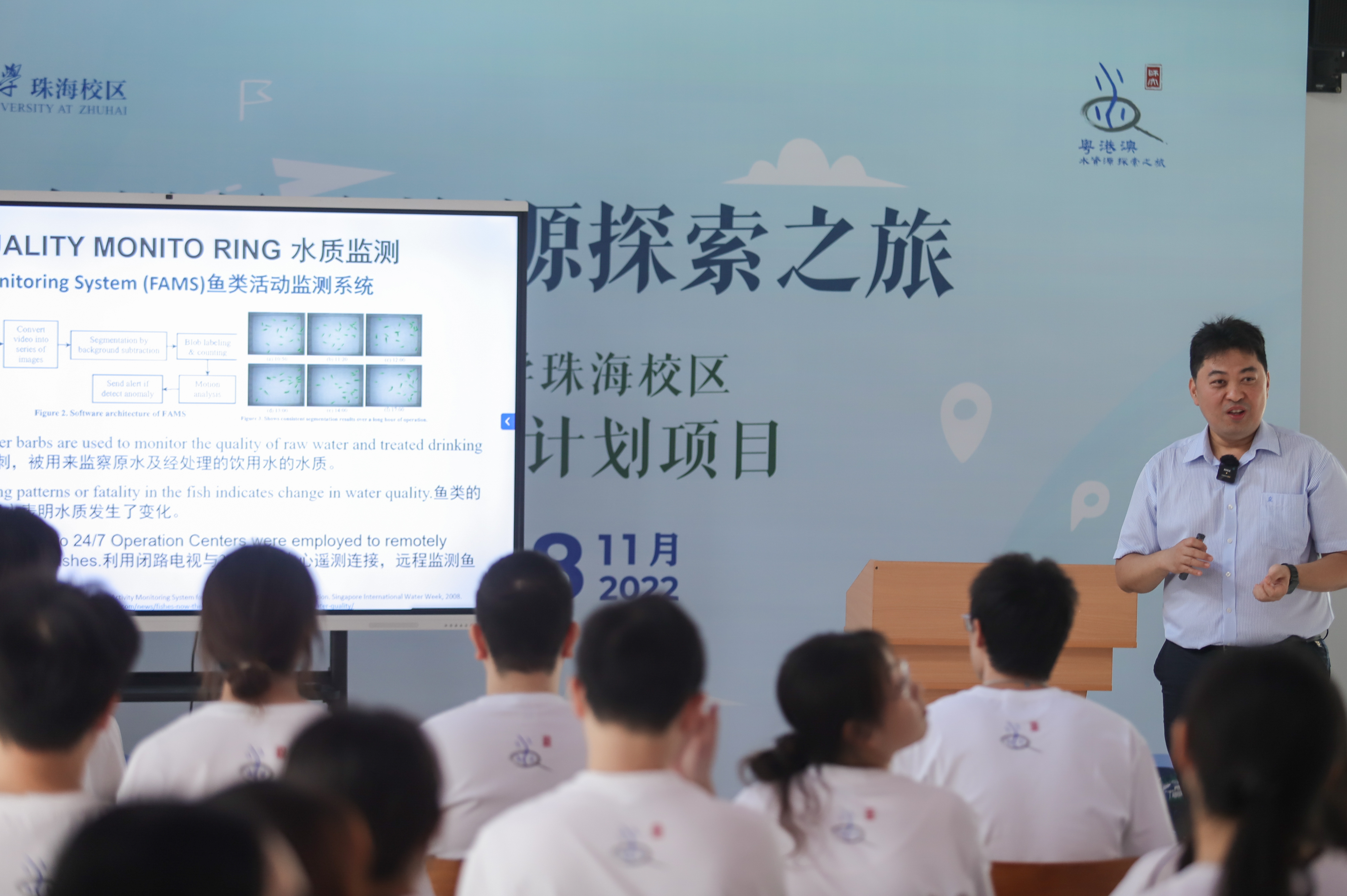
Picture 5
Academician How Yong Ng, Singapore Academy of Engineering was lecturing on "Strategies and Technologies for Ensuring Water Supply Security under Climate Change."
At the Mangrove Wetland Reserve, students and teachers learned that mangrove wetlands, as highly productive systems, maintain complex biological chains and possess high ecological, scientific research and ornamental values. At the Pearl River Estuary Chinese White Dolphin Nature Reserve, the interpreter introduced the campers to the daily work of the reserve to save the endangered Chinese white dolphin population. The Reserve protects the biodiversity of the natural environment of the Pearl River Estuary waters while restoring the marine ecosystem, increasing fishery resources, and providing guarantee for sustainable economic development.
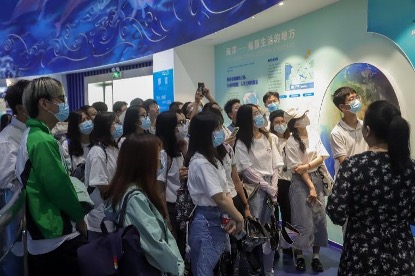
Picture 6
Campers at Qiau Mangrove Wetland Reserve
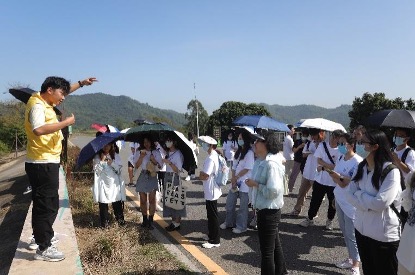
Picture 7
Campers at the Pearl River Estuary Chinese White Dolphin Nature Reserve
During the three-day study tour, young people from Guangdong, Hong Kong and Macau had the opportunity to learn more about the water ecology of the Greater Bay Area, increase their knowledge of environmental protection, and take the initiative to enhance their awareness and skills in protecting the environment.
He Jiangkun, Vice Dean of Phoenix School, expressed his heartfelt thanks to the sister universities in Hong Kong and Macau, the teaching units, and functional departments of BNU Zhuhai and BNUZ for their strong support to the project in his concluding speech. Guangdong, Hong Kong, and Macau Cultural and Educational Exchange Centre, as the implementation carrier of the exchange project of Hong Kong and Macau at BNU Zhuhai, has been actively preparing for and organizing the project from its declaration to its implementation, and has carried out fruitful work by combining online and offline platforms to facilitate the project’s smooth promotion. The center hopes to further summarize our experience, integrate resources, take the project of "Exploring Water Resources in Guangdong, Hong Kong and Macau" as an opportunity to vigorously develop brand projects for Hong Kong and Macau, and attract outstanding teachers and students of various majors from Hong Kong and Macau to come to Guangdong for exchanging ideas and inspiring innovative thinking.
BNU Zhuhai is adamant about serving the national education priority development strategy, focusing on the frontiers of international science and technology and the frontiers of future strategic emerging industries, and giving full play to its educational resources and disciplinary advantages. In the future, Guangdong, Hong Kong, and Macau Cultural and Educational Exchange Centre will continue to strengthen cultural exchange and integration; shape the cultural brand of the Greater Bay Area; enable Hong Kong and Macao youths to fully understand the development of the motherland; assist in deepening their understanding of the current situation of education, science and technology development in the Mainland and guide them to better integrate their personal growth and development into the overall development of the Guangdong-Hong Kong-Macao Greater Bay Area and the country. The Centre will also build an all-round and permanent collaborative mechanism for patriotic education for young people in Hong Kong and Macau, create a social service system setting foot on the Greater Bay Area and facing the world, serve the development of basic education in Hong Kong and Macau, and facilitate the construction of the Greater Bay Area and "the Belt and Road" national strategy going forward in a two-way and coordinated direction.
Translator: Xu Yifan
Proofreading: Martin Wittenberg